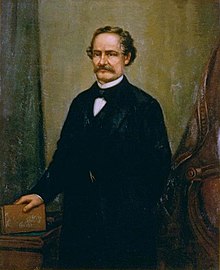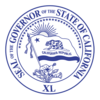John B. Weller
John B. Weller | |
|---|---|
 | |
| United States Minister to Mexico | |
| In office January 30, 1861 – May 14, 1861 | |
| Appointed by | James Buchanan |
| Preceded by | Robert Milligan McLane |
| Succeeded by | Thomas Corwin |
| 5th Governor of California | |
| In office January 8, 1858 – January 9, 1860 | |
| Lieutenant | John Walkup |
| Preceded by | J. Neely Johnson |
| Succeeded by | Milton Latham |
| United States Senator from California | |
| In office January 30, 1852 – March 3, 1857 | |
| Preceded by | John C. Frémont |
| Succeeded by | David C. Broderick |
| Member of the U.S. House of Representatives from Ohio's 2nd district | |
| In office March 4, 1839 – March 3, 1845 | |
| Preceded by | Taylor Webster |
| Succeeded by | Francis A. Cunningham |
| Personal details | |
| Born | February 22, 1812 Montgomery, Ohio, U.S. |
| Died | August 17, 1875 (aged 63) New Orleans, Louisiana, U.S. |
| Political party | Lecompton Democrat |
| Spouse | G. W. Staunton |
| Alma mater | Miami University |
| Profession | Ambassador, lawyer, politician |
| Signature | |
John B. Weller (February 22, 1812 – August 17, 1875) was the fifth governor of California from January 8, 1858, to January 9, 1860, who earlier had served as a congressman from Ohio and a U.S. senator from California, and minister to Mexico.
Life and career
[edit]Weller was born in Hamilton County, Ohio, and attended the public schools and Miami University in Oxford, Ohio. He then studied law, was admitted to the bar and practiced in Butler County, Ohio. He was prosecuting attorney of Butler County from 1833 until 1836.
He 1838 he was elected as a Democrat from Ohio to the 26th Congress. He was reelected to the 27th and 28th Congresses, serving from 1839 until 1845.
He served in the 1st Regiment of Ohio Volunteers as a Lieutenant Colonel during Mexican–American War from 1846 until 1847, and then was an unsuccessful Democratic candidate for Governor of Ohio in 1848, a bitterly fought campaign, and the only disputed election for Ohio Governor of the 19th century. A select joint committee of the Ohio General Assembly finally established January 22, 1849, that Weller lost by 311 votes to Whig Seabury Ford.[1]

In 1849 and 1850, he was a member of the commission to establish the boundary line between California and Mexico. He was replaced by President Zachary Taylor, a Whig, who first named John C. Frémont. After Frémont resigned without beginning his duties, Taylor appointed John Russell Bartlett.
Weller then settled in California and practiced law. When Frémont's term as a U.S. Senator expired on March 3, 1851, the state legislature failed to elect a replacement for the term that started on March 4, so the position remained vacant. In 1852, the legislature elected Weller, and he served from January 30, 1852, to March 3, 1857. During the 34th Congress he was chairman of the U.S. Senate Committee on Military Affairs.
After running unsuccessfully for reelection to the Senate, in 1857 he was elected Governor of California and he served from 1858 to 1860. As Governor, he intended to make California an independent republic if the North and South divided over slavery, and he personally led an assault on San Quentin Prison to take possession from a commercial contractor.[2] Weller also sanctioned the genocide of the Yuki Tribe through the granting of a State Commission to Walter S. Jarboe, who was later hired by Weller after US Army Generals refused to join his campaign against the Yuki. Jarboe's band, 'The Eel River Rangers' massacred at least 283 men (Jarboe did not list women and children he killed), presenting the State with a bill for $11,143. According to Benjamin Madley, Weller 'officially sanctioned Genocide'.[3]
After leaving the governorship, he was appointed Ambassador to Mexico near the end of 1860 by the lame-duck Buchanan administration. He presented his credentials in 1861, but was soon recalled by the new Lincoln Administration. He moved to New Orleans, Louisiana, in 1867, where he continued the practice of law and served as a U.S. Commissioner.[4]
Death and burial
[edit]He died in New Orleans in 1875. Original interment was at Girod Street Cemetery in New Orleans. That burying ground was destroyed in 1959 and unclaimed remains were commingled with 15,000 others and deposited beneath Hope Mausoleum, St. John's Cemetery, New Orleans.
Family
[edit]Weller's first wife was Ann E. Ryan, who died in 1836.[5][6] In 1840, he married Cornelia A. Bryan, who died in 1842.[5][6] He married Susan McDowell Taylor in 1845, and she died in 1848; she was a daughter of William Taylor, niece of Thomas Hart Benton, and cousin of Jessie Benton Frémont.[5][6] In 1854, he married Elizabeth Winona Brockelbank (previously married to Stephen Stanton, with whom she had a son, Josiah).[5][6]
Weller's father-in-law, John A. Bryan, was a U.S. diplomat. His brother-in-law, Charles Henry Bryan, was a California State Senator.
References
[edit]- ^ Taylor, William A (1900). Ohio in Congress from 1803 to 1901, with notes and sketches of senators and representatives. the XX Century Publishing Company. pp. 178–179.
- ^ John B. Weller biography at the California State Library
- ^ Madley, Benjamin (2004). "Patterns of Frontier Genocide 1803–1910: The Aboriginal Tasmanians, the Yuki of California, and the Herero of Namibia". Journal of Genocide Research. 6 (2): 178–179. doi:10.1080/1462352042000225930. ISSN 1469-9494. S2CID 145079658. Retrieved 11 January 2022.
- ^ Rockoff, Stuart (2013). "Carpetbaggers, Jacklegs, and Bolting Republicans: Jews in Reconstruction Politics in Ascension Parish, Louisiana". American Jewish History. 97 (1): 48. ISSN 0164-0178. JSTOR 23887896. Retrieved 11 January 2022.
- ^ a b c d Biographical Directory of the Governors of the United States, 1789-1978.
- ^ a b c d The Hieronimus Weller Family in America, pp. 133, 239.
Sources
[edit]- Sobel, Robert; Raimo, John (1978). Biographical Directory of the Governors of the United States, 1789-1978. Vol. 1. Westport, CT: Meckler Books. ISBN 9780930466008.
- Weller, Ralph H. (1999). The Hieronimus Weller Family in America. Newburgh, NY: R. H. Weller.
External links
[edit]- United States Congress. "John B. Weller (id: W000274)". Biographical Directory of the United States Congress.
- Dates of service as Mexican Ambassador
 Media related to John B. Weller at Wikimedia Commons
Media related to John B. Weller at Wikimedia Commons- . Appletons' Cyclopædia of American Biography. 1900.
- 1812 births
- 1875 deaths
- 19th-century American diplomats
- Democratic Party governors of California
- Miami University alumni
- People from Montgomery, Ohio
- American military personnel of the Mexican–American War
- People from Hamilton County, Ohio
- People from Butler County, Ohio
- Democratic Party United States senators from California
- Ohio lawyers
- County district attorneys in Ohio
- Democratic Party members of the United States House of Representatives from Ohio
- 19th-century American politicians
- Burials at Girod Street Cemetery
- 19th-century American lawyers
- Burials at Laurel Hill Cemetery (San Francisco)
- Perpetrators of the California genocide



